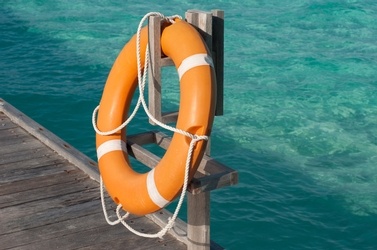Summer is in full swing and families throughout the community are seizing the opportunity to hit the pool, beach, lake or water park to cool off and soak up some sun. Whether your next outing calls for snorkeling gear or an inflatable raft, don't forget to make water safety a priority, especially in areas where certified lifeguards are not present.
Consider these tips for staying safe in and around the water this summer:
1. Never swim alone. Not only is swimming with a buddy more enjoyable, it's also smarter. Having someone there to assist in an emergency may prove lifesaving.
2. Know your limits. Swimming can be a lot of fun, but if you're not a strong swimmer, or if you're just learning to swim, don't go into water that's over your head.
3. Take swimming lessons. You're never too old to learn to swim. If you are an adult who cannot swim, consider taking lessons offered by the American Red Cross or YMCA. And if you have a child who has not yet learned to swim, sign them up for lessons as soon as possible. Learning to swim at an early age builds confidence and encourages water safety for a lifetime.
4. Keep a close eye on children. Children between the ages of one and four who drown in an at-home pool are usually under parental supervision and out of sight for less than five minutes. Set rules, teach children to ask before going near the water and remove pool toys whenever possible as they can attract a child's attention and draw them to the water. Never leave a child alone around water.
5. Practice caution in natural water settings. Drowning incidents are more likely to occur in natural water settings. Unexpected drop offs, rocks, branches, waves or water temperatures can easily take a swimmer by surprise. Never dive into unknown waters and stop swimming at the first sign of bad weather. Louisiana law requires that U.S. Coast Guard approved personal flotation devices must be worn by all persons engaged in water sports such as skiing, wake boarding, being towed on a tube, etc.; and by children 16 years of age and younger while underway on a vessel less than 26 feet long.
6. Wear Sunscreen. A day in the sun without sunscreen can cause severe burns that are easily prevented by applying sunscreen with an SPF of 30 or higher.
7. Learn CPR. In emergency situations, immediately call 9-1-1 and start CPR until help arrives. Bystander CPR can double or even triple a victim’s chance of survival.
"About 3,500 Americans drown each year, averaging 10 deaths per day," says Emergency Room Director Billy Conerly. "And more than one in five fatal drowning victims are children 14 and younger, which is especially sad because most drowning cases we see could have been prevented with proper water safety, especially in at-home pools."




